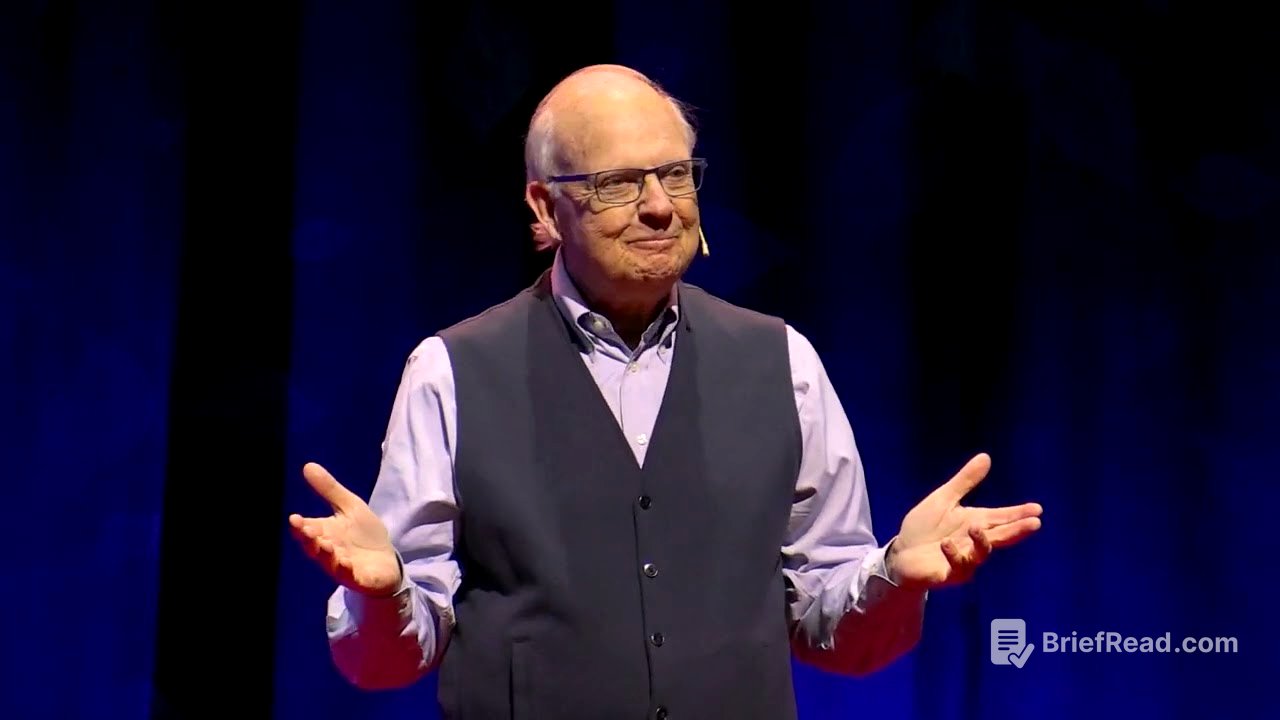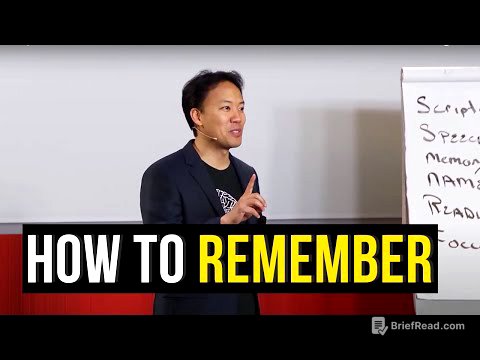TLDR;
The speech addresses the psychological aspects of retirement, often overlooked in favor of financial planning. It describes four distinct phases of retirement: the vacation phase, the phase of loss, the trial and error phase, and the reinvention phase. The speaker emphasizes the importance of understanding these phases to navigate retirement successfully and find fulfillment.
- Retirement involves significant psychological adjustments beyond financial preparation.
- There are four phases of retirement: vacation, loss, trial and error, and reinvention.
- Finding meaningful activities and service to others is key to a fulfilling retirement.
Introduction [0:00]
The speaker introduces the topic of psychological preparedness for retirement, noting that while financial readiness is commonly discussed, the emotional and mental adjustments are often overlooked. With a large number of North Americans retiring daily, many will face unexpected challenges. The speaker emphasizes the importance of understanding the psychological changes that come with retirement, as individuals may spend a significant portion of their lives in this phase.
The Walking Group Discussion [1:16]
The speaker shares a personal experience from a walking group where the topic of discussion was "How do you squeeze all that juice out of retirement?". This question resonated with the speaker, who was experiencing challenges in finding significance and purpose in retirement. This led to an investigation into the topic, revealing that most retirement resources focus on financial and estate planning rather than psychological well-being.
The Four Phases of Retirement [3:03]
The speaker introduces a framework of four distinct phases that most people go through in retirement. These phases are not always smooth, but understanding them can help retirees recognize where they are and what to expect. The ultimate goal is to reach phase four, which is described as the most gratifying and satisfying phase, where one can truly "squeeze all the juice out of retirement."
Phase One: The Vacation Phase [3:45]
Phase one is described as the "vacation phase," characterized by freedom, relaxation, and a lack of routine. Individuals in this phase enjoy waking up when they want and doing whatever they please. This phase often represents people's ideal view of retirement. However, for most, this phase lasts about a year before it begins to lose its appeal, leading to feelings of boredom and a longing for routine.
Phase Two: Loss and Feeling Lost [4:47]
Phase two involves feelings of loss and being lost, marked by the loss of five key elements: routine, identity, relationships (from work), purpose, and for some, power. These losses can occur suddenly and unexpectedly, leading to a traumatic experience. This phase also involves facing the "three Ds": divorce, depression, and decline (physical and mental). The speaker warns that individuals in this phase may experience fear, anxiety, and even depression.
Phase Three: Trial and Error [6:20]
Phase three is a period of trial and error, where individuals seek to find meaning and contribution in their lives again. This often involves pursuing activities they love and are good at. However, this phase can also bring disappointment and failure as retirees experiment with different roles and activities. The speaker emphasizes the importance of continuing to try new things to avoid slipping back into the negative feelings of phase two.
Phase Four: Reinvent and Rewire [8:33]
Phase four is a time of reinvention and rewiring, where individuals answer tough questions about purpose and mission. It involves finding meaningful activities that provide a sense of accomplishment, often through service to others. The speaker shares examples of retirees who have found fulfillment through volunteering, teaching, and helping others. In this phase, the losses experienced in phase two are recovered, leading to a fulfilling and satisfying retirement.
Examples of Phase Four [9:17]
The speaker provides examples of people in phase four, such as "the old coots" who offered advice at a farmers market and Bill, who organized a program where retirees taught various skills to each other. These examples illustrate how retirees can find purpose and fulfillment by sharing their expertise and serving their community. The speaker highlights the success of Bill's program, which grew from nine programs with 200 participants to over 90 programs with 2100 registrations.
Recovering Losses in Phase Four [12:14]
The speaker reiterates that in phase four, the losses experienced in phase two—routine, identity, relationships, purpose, and power—are recovered. This recovery leads to a transformative and fulfilling experience.
Conclusion [12:33]
The speaker encourages the audience to enjoy the vacation phase, prepare for the losses in phase two, experiment in phase three, and strive to "squeeze all the juice out of retirement" in phase four.









